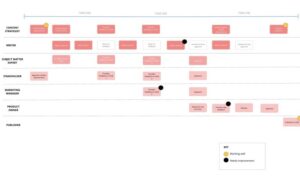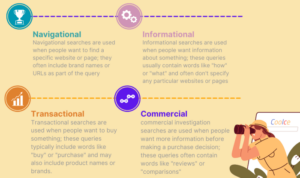Effective Time Management is key to success in all aspects of life. Imagine a world where you can get more done, stress less, and still have time for yourself – that’s the power of managing your time effectively.
From prioritizing tasks to utilizing tools and techniques, this guide will help you master the art of time management like never before.
Benefits of Effective Time Management
Effective time management is crucial for improving productivity, reducing stress levels, and achieving better work-life balance. By prioritizing tasks and allocating time efficiently, individuals can accomplish more in less time, leading to various benefits.
Improved Productivity
- Setting clear goals and deadlines helps individuals stay focused and motivated to complete tasks.
- Eliminating distractions and time-wasting activities allows for better concentration on important tasks.
- Creating a schedule or to-do list helps in organizing tasks and maximizing productivity throughout the day.
Reduced Stress Levels
- Effective time management reduces the feeling of being overwhelmed by tasks and deadlines.
- Properly planning and allocating time for each task can alleviate the stress of last-minute rushing or procrastination.
- Accomplishing tasks on time provides a sense of achievement and control, lowering stress levels.
Better Work-Life Balance
- Allocating time for work, personal activities, and relaxation helps in maintaining a healthy balance.
- Prioritizing tasks allows individuals to focus on work during work hours and enjoy personal time without feeling guilty.
- Effective time management enables individuals to pursue their personal interests and spend quality time with family and friends.
Strategies for Effective Time Management
Effective time management is crucial for success in any endeavor. By implementing the right strategies, you can make the most of your time and achieve your goals efficiently. Here are some popular time management techniques and tips to help you stay organized and productive:
Pomodoro Technique
The Pomodoro Technique is a time management method developed by Francesco Cirillo in the late 1980s. It involves breaking down work into intervals, typically 25 minutes in length, separated by short breaks. This technique helps improve focus and productivity by encouraging you to work in short, concentrated bursts.
Eisenhower Matrix, Effective Time Management
The Eisenhower Matrix, also known as the Urgent-Important Matrix, is a tool for prioritizing tasks based on their urgency and importance. By categorizing tasks into four quadrants (Urgent and Important, Not Urgent but Important, Urgent but Not Important, Not Urgent and Not Important), you can better allocate your time and focus on what truly matters.
Prioritize Tasks
When managing your time, it’s essential to prioritize tasks based on their importance and deadlines. Make a list of all your tasks and categorize them according to their urgency and significance. Focus on completing high-priority tasks first to ensure you’re making progress towards your goals.
Set SMART Goals
Setting SMART goals (Specific, Measurable, Achievable, Relevant, Time-bound) is key to effective time management. By defining clear objectives and establishing a timeline for achieving them, you can stay motivated and on track. SMART goals help you prioritize your tasks and allocate your time wisely to maximize productivity.
Tools and Apps for Time Management

Effective time management is crucial for success in any aspect of life, whether it be school, work, or personal projects. Utilizing tools and apps specifically designed for time management can help individuals stay organized, focused, and productive.
Trello
Trello is a popular project management tool that allows users to create boards, lists, and cards to organize tasks and collaborate with team members. It provides a visual overview of tasks and deadlines, making it easy to prioritize and track progress.
Asana
Asana is another project management tool that helps users track their work and manage projects efficiently. It offers features such as task assignments, due dates, and progress tracking to ensure that everyone stays on the same page and meets deadlines.
Google Calendar
Google Calendar is a simple yet powerful tool for scheduling and time management. Users can create events, set reminders, and share calendars with others. It syncs across devices, making it easy to stay organized and on track.
Time Tracking Apps
There are several time tracking apps available that can help individuals monitor how they spend their time and identify areas for improvement. Some popular options include Toggl, RescueTime, and Clockify. These apps track time spent on tasks and provide insights into productivity levels.
Benefits of Using Technology for Time Management
By utilizing tools and apps for time management, individuals can streamline their workflow, reduce procrastination, and improve overall productivity. Technology enables users to set reminders, prioritize tasks, and track progress more effectively than traditional methods.
Overcoming Time Management Challenges

Effective time management can be challenging due to various obstacles that can hinder productivity. It is important to identify these challenges and implement strategies to address them in order to improve time management skills.
Avoiding Procrastination
Procrastination is a common obstacle to effective time management. To overcome this challenge, it is essential to break tasks into smaller, manageable chunks and set specific deadlines for each task. Additionally, creating a conducive work environment, eliminating distractions, and practicing self-discipline can help in avoiding procrastination and staying focused on the task at hand.
Delegating Tasks
Delegating tasks is a key strategy for improving time management. It allows you to prioritize important tasks and allocate your time more efficiently. To delegate tasks effectively, it is important to identify the strengths and skills of team members, clearly communicate expectations, and provide necessary support and resources. By delegating tasks, you can free up time for more critical activities and enhance overall productivity.





